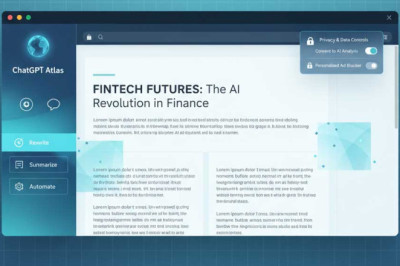
views
AI Coding Assistants May Slow Down Experienced Developers, Surprising New Study Reveals
A groundbreaking study released by the AI research nonprofit METR has challenged prevailing assumptions about the benefits of AI-powered code assistants. Contrary to the common belief that tools like Cursor can accelerate software development, the study found that experienced developers working in familiar codebases were actually 19% slower when using these AI assistants.
🚨 Key Findings from the METR Study
-
Expectation vs. Reality Gap:
Developers expected AI to cut task time by 24%. Even after using the assistant, they reported a perceived 20% speedup. The reality? On average, tasks took 19% longer—a substantial slowdown. -
Experienced Developers Hit Hardest:
The productivity decline was observed among developers working with open-source projects they already knew well. Rather than helping, the AI often disrupted their mental models and workflows, introducing friction instead of flow. -
Researchers Surprised:
Lead authors Joel Becker and Nate Rush expressed genuine surprise, stating that the initial expectation was for a twofold productivity boost—a result that not only didn’t materialize but reversed entirely in key cases.
⚖️ Balancing Perspectives: When AI Helps… and When It Doesn’t
Despite the METR study’s sobering conclusions, other research paints a more optimistic view:
-
Boost for Repetitive Tasks:
Tools like GitHub Copilot and Cursor can accelerate mundane coding—e.g., writing boilerplate code, generating comments, or formatting syntax—especially helpful for junior developers or during prototyping. -
Knowledge Sharing & Onboarding:
AI assistants can act as interactive documentation, helping new team members understand best practices and integrate more quickly into development workflows. -
Varied Impact Across Teams:
According to GitLab and McKinsey reports, productivity improvements of up to 45% have been noted—but context matters. Simple CRUD tasks benefit more than nuanced architecture decisions or legacy code refactoring. -
Skepticism from Engineering Leaders:
Only about 6% of tech leaders report significant productivity gains from AI tools, with many teams seeing only marginal benefits—or none at all.
🧭 Implications for the Future of Software Development
The METR study raises vital questions for teams considering broad AI adoption:
-
Integration Over Imitation:
AI tools must evolve to enhance expert workflows, not mimic them. Disrupting well-honed practices can create drag rather than lift. -
Rethinking Tool Design:
AI assistants might need better contextual understanding, smarter prompting mechanisms, and deeper domain training to be effective in real-world, high-stakes environments. -
Changing Job Landscape:
While AI may slow senior developers in certain settings, it could replace or augment junior roles, shifting the structure of engineering teams and the nature of entry-level programming jobs.
📌 Final Thoughts: More Complexity Than Hype Admits
The conversation around AI in development is no longer about whether it helps, but when, how, and for whom. The METR study is a reminder that tools don’t replace experience—and that meaningful productivity gains depend on careful implementation and continuous learning.
As the industry navigates this AI-powered transition, one thing is clear: blind optimism must give way to evidence-based integration strategies.
Sources:
-
METR Study (2025): https://metr.org/blog/2025-07-10-early-2025-ai-experienced-os-dev-study/
-
Channel News Asia: https://www.channelnewsasia.com/business/ai-slows-down-some-experienced-software-developers-study-finds-5231866
-
Full Scale Dev Team: https://fortegrp.com/insights/ai-coding-assistants
-
GitLab, McKinsey, LeadDev Survey, TechRadar, Reddit discussions




















Comments
0 comment